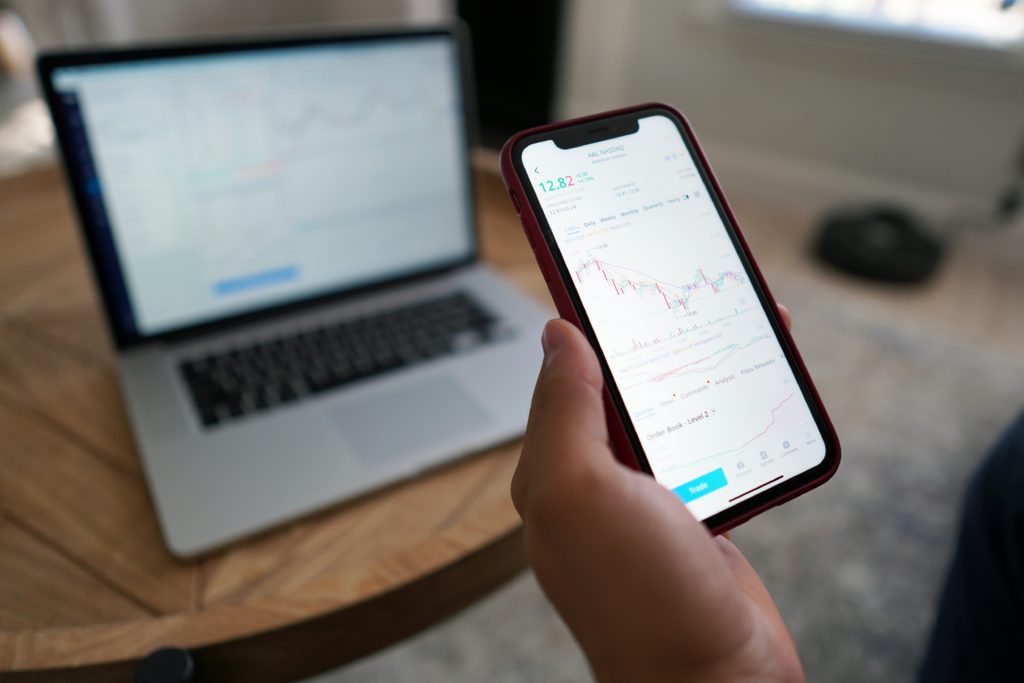Online trading has become more risky
This month I have had a conversation with 3 different clients about their children and money. Their children have started asking about trading stocks. While I encourage investing and teaching children about money at an early age, I am nervous about how easy it is to make mistakes without proper guidance.
This could be a huge opportunity to teach them to be wise long term investors, and the dangers of day trading. According to a Dalbar study in 2020 the average equity investor over the past 20 years has returned 5.04% versus buying and holding the SP500 and returning 9.96%.
Online trading has become society’s newest form of gambling for young adults in our society. This is in part due to the rise of commission free trading by brokerages, as well as the high levels of margin available through certain platforms. All of this has elevated the role of trading from a hobby or pastime to an activity with the potential to ruin a person’s financial future – and in some cases, it unfortunately has.
The growth of social media, and the higher potential for influencers to make money from their followings has also played a role in encouraging risky, reckless investing behavior. There are many instances of this causing considerable damage to the investing public, including a young man who apparently killed himself after seeing a six-figure loss in his Robinhood account.
For these reasons, I encourage you to pass the following information on to your children, any young adult you know, or any individual that you know who may be participating in online trading. You may also refer them to the sources listed at the bottom of this article for further explanation of the concepts discussed.
How online influencers make money and the potential bias that goes along with it
Social media influencers are not always objective in their views. For all of the following reasons, recommendations made on the Internet may be highly biased to benefit the person making the call, and should not be assumed to be objective, independent, or made 100% in your favor.
- Often social media influencers are motivated to talk about controversial topics or make exaggerated statements to attract attention and grow their followings. This is because many of them get paid higher advertising revenue for higher views on their posts.
- Influencers may also earn money by encouraging their followers to by products that they receive an affiliate payment, or kickback, on through use of affiliate links. Someone may say, for example, to click a link below their video to open an account at a certain brokerage firm for a discount so that they can make the trades mentioned in the person’s video.
- Influencers may also benefit from you taking action on certain positions that they hold or intend to get involved with. If they hold a certain stock, they stand to benefit from massive buying action taken by others on the same position. If they intend to buy a certain position, they will benefit from massive selling action on that security prior to purchase.
- Influencers may neglect to fully disclose all of the risks involved with making the investment in an effort to prompt followers to take action.
- They also may cite impressive historical track records without providing legitimite verification of these performance results, again to encourage followers to take any action that will benefit them.
Many online influencers make their recommendations merely on the news and do not conduct proper research as to the fundamentals behind the position. Often these influencers are not licensed, regulated, or registered representatives of any securities firm. As a result, they are given significantly more freedom to discuss high risk recommendations without having to fully disclose the potential downside of any investments they are recommending.
Margin, shorting and unlimited potential for loss
Certain brokerage positions may offer you margin as a way to potentially magnify the gains made from trading. Trading on margin is a high-risk activity and you have the potential to lose substantial amounts of money if the market moves against you. Margin is defined as money borrowed from the brokerage firm you are trading with. In essence, you are getting a loan from the broker, one that is not forgivable under any circumstances and that you must pay interest on. Please refer to this description of how margin works from Charles Schwab.
Short selling is a high-risk form of trading. You borrow a stock on margin and then sell it, with the understanding that you will buy it back. Your hope is that the stock drops in price so that you can profit from the difference between what you sold it for and what you bought it for. Because stocks have the potential to rise indefinitely in price, the potential for loss on a short position is unlimited. Please take precautions and understand the risks of short selling before doing so.
Responsible trading tips
- Before you take advice from someone on the internet making an investment recommendation, ask yourself what they stand to gain by you taking the action they recommend.
- Conduct your own research, and consult numerous information sources with varying and opposing opinions on any particular position, including those by licensed, regulated professionals who are obligated to discuss in full each and every risk inherent in the investment.
- Take the highest of precautions when investing in speculative stocks, engaging in short selling, or trading on margin, as the potential for loss is high and in some cases may be unlimited.
- If you have any questions about what you are trading, stop and consult a qualified, licensed, and regulated financial professional before going through with the trade.
- Always consider the maximum potential for loss and thoroughly research all of the risks involved before initiating any trade.
Please consider having a conversation with your children about responsible investing. If they are looking for a thrill perhaps segregate some money they can afford to lose. If they want to “play”, open a Draft Kings or stock trading account. If they do that insist they also learn about investing by having them talk with your financial planner.
The planner should be happy to spend 15-30 minutes teaching them about money for no fee. They should ask your children questions about what the money is being invested for. When you invest with a goal in mind it gives it purpose. Do they want to-
- Pay for a portion of college?
- Go on a senior trip?
- Buy a car at graduation?
- Down payment on a condo after school?
- Get a jump start on retirement?
Investing goes much deeper than a hot stock home run. I cringe at the thought of some novice investors not realizing the short term capital gains from their Gamestop earnings. liquidity and taxes are equally as important as rate of return.
My parents had me open a Roth IRA when I had my first job. They would treat it like a 401k and offered to match any money I put in. I would get home from making $20 mowing lawns and hand them half. A week later I would run to the mailbox grab the statement and see the shares of the SP500 index fund adding up. Yes back then the statements showed shares and not value. I had to wait for the evening news to see the SP500 value, take out a calculator to see how I was doing. Perhaps there is another lesson there for another day.
Sources
Egan, Matt. (2020, June 20th). CNN Business. Apparent suicide by 20-year-old Robinhood trader who saw a negative $730,000 balance prompts app to make changes. Retrieved from https://www.cnn.com/2020/06/19/business/robinhood-suicide-alex-kearns/index.html
Frederick, Randy. (2021, February 12). Margin: How does it work? Charles Schwab. Retrieved from https://www.schwab.com/resource-center/insights/content/margin-how-does-it-work.
Little, Ken. (2020, January 19th). Short selling stocks – not for the faint-hearted. Retrieved from https://www.thebalance.com/short-selling-stocks-not-for-the-faint-hearted-3140549
Singh, Manoj. (2021, Jan 9). Investopedia. How to become your own stock analyst. Retrieved from
https://www.investopedia.com/articles/basics/09/become-your-own-stock-analyst.asp





